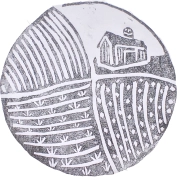
“We must learn to reawaken and keep ourselves awake, not by mechanical aids, but by an infinite expectation of the dawn, which does not forsake us even in our soundest sleep. I know of no more encouraging fact than the unquestionable ability of man to elevate his life by a conscious endeavour. It is something to be able to paint a particular picture, or to carve a statue, and so to make a few objects beautiful; but it is far more glorious to carve and paint the very atmosphere and medium through which we look, which morally we can do. To affect the quality of the day, that is the highest of arts.”
Last night at bedtime my kindergartner asked me if we could wake up “still in the nighttime” and go on an adventure before school. I told him sure, but that he’d have to wake me up. This morning at precisely 6:15 am, I felt a small hand on my shoulder and a whispered, “Dad, it’s getup time.” Without opening my eyes I whispered back, “ok just a few minutes.” He refused to snooze and appealed to my sense of honor: “You promised last night that we could get up in the nighttime. Is it morningtime now?” I acquiesced and rolled out of bed. Within five minutes we were both stepping into wellies and zipping up down jackets. He wore a hat. I couldn’t find mine.
I have wanted to go for a dawn walk in the woods for the past couple of weeks now. I even worked out a plan for doing a morning walk at exactly the same time and on the exact same route every morning for a year and writing about it, a sort of human time lapse. Such rigid discipline appeals to my imagination, but not to my body. It took a persistent five-year-old to actually get me out into the woods at dawn.
Yesterday I walked around the farm on a cloudy afternoon to take some pictures for this website. Except for the green halo around a few just-budded maple trees, the whole farm was a flat duochrome of gray and brown. This morning everything was soaked in the golden orange of low-angle dawn light. The same green buds and grass now sparkled with heavy dew. Long tree shadows reached far into the meadow and field.
We grabbed the Nikon before we went out, and I let him carry it. Yesterday when I was taking pictures, I moved fallen branches that cluttered a shot of the woods and a long orange cinch strap out of a picture of the barn. I stood next to the Weber grill so that it would be out of the home page picture. My son hasn’t yet learned to frame discordant or ugly elements out of his shots, and the result is a pure form of realism. He’s just trying to capture the world he sees; he’s not trying to present it to anybody. His camera work captured a couple embarrassing pictures of soggy moving boxes that have cluttered our driveway for far too long and a couple of beautiful low angle (ie. from about 3’6”) shots of the sunrise. My favorite is this one, “Broken Down Tree.” The picture and its title are all his.




